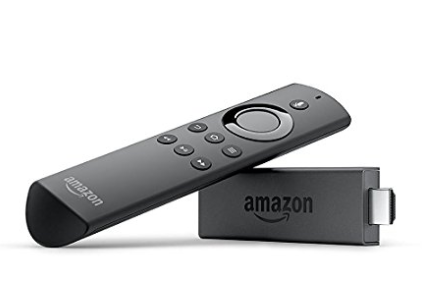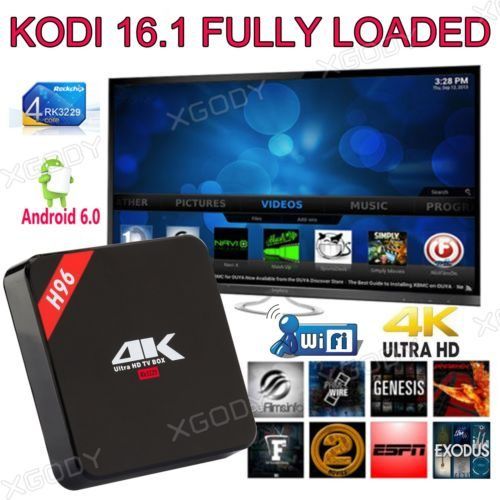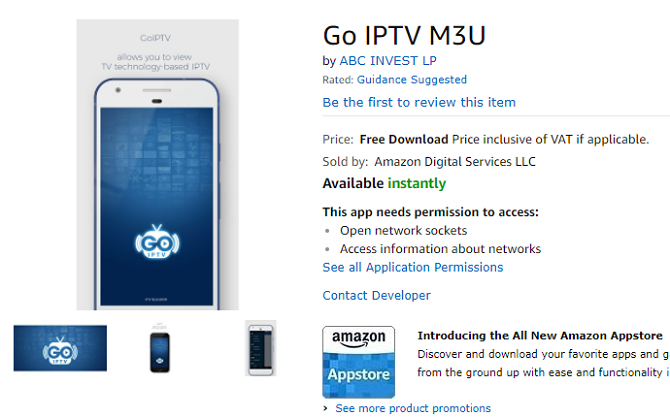Kodi and Amazon Fire TV Stick are two of the most popular ways to consume content at home. Kodi is a home theater app that serves as a library management tool for all your media, while Amazon Fire TV Stick is a streaming device that provides access to Netflix, Hulu, Amazon Prime Video, etc.
To give you an idea of the numbers, at the time of writing, nearly 40 million people are using Kodi, and Amazon has sold over 65 million Fire TV Sticks to date.
However, while both Kodi and Amazon Fire are great for their flexibility, users can easily find themselves in hot water if they use these tools for the wrong purposes. In this article, we’ll explain what’s legal, what’s illegal, and what falls into the murky ‘gray area’.
hacking problem
It is human nature to want something for nothing. As a species, we typically want the maximum amount of reward for the minimum amount of effort. And in terms of free entertainment, apps like Kodi and devices like Amazon Fire TV encourage the behavior even more.
Both ecosystems have developed a reputation for themselves as bastions of piracy. Most importantly, they were both happy to let the reputation fester. In the case of Kodi, it has helped download numbers significantly. And in the case of the Amazon Fire TV Stick, it helped sell units.
Now the problem has reached epidemic proportions.
In November 2017, the Copyright Alliance hosted a panel discussion. One of the speakers was Senior Vice President of the Motion Picture Association of America (MPAA), Neil Fried. according to torrentfreak, it is claimed that 26 million of the 38 million Kodi users regularly use hacking tools. That’s nearly 70 percent.
As for the Amazon Fire TV Stick, the brand name of the device is now part of the global vernacular. In the same way that “Netflix and Chill” acquired its own meaning, “Firestick that sh*t” now means “download an illegal copy of a movie or TV show and take advantage of the Fire Stick’s impressive flexibility to watch it on your TV.”
Seriously, we’ve reached the levels of illegal Popcorn Time.
Even famous entertainment stars advocate the process. Jamie Foxx recently told chat show host Joe Rogan that he might be the “Firestick that sh*t” if a new movie had bad reviews, while 50 Cent said his Tupac biopic was really bad. [sic]. “
user trap
From the user’s point of view, it is easy to fall into a trap. If even famous Hollywood actors and rappers condone the piracy of their contemporaries’ work, could truly be that bad?
If you start looking for more information, you’ll quickly enter a world of seemingly legal and commonly used add-ons and apps.
For example, an eBay search for Kodi boxes will reveal an almost endless stream of “Fully Loaded” devices. Vendors will promise everything from the latest Hollywood blockbusters to major sporting events.
Likewise, there are countless sub-forums about getting “free” content on the Kodi app and Amazon Fire Stick. IPTV related forums promise thousands of TV channels for less than $5 per month. Kodi repositories provide add-ons for every type of content you can think of. And the list goes on.
The issue of piracy is now so prevalent that it has become normal. But much like the file-sharing apps of the 2000s and the illegal streaming sites of the early 2000s, they are not here to stay. The authorities began to crack down.
If you want to make sure you stay on the right side of the law, you need to know what is legal and what is not.
What is legal on Kodi and Amazon Fire TV?
Let’s take a closer look at the legal content on the two platforms.
First, let’s dispel the myth that Kodi is inherently illegal. it’s not like that. There is nothing illegal in using a Kodi app or owning a Kodi box. Likewise, there is nothing illegal in downloading Kodi on Amazon Fire TV Stick.
Secondly, any add-on that is part of the official Kodi repurchase is completely legal. The official repo includes apps like PlayStation Vue, BBC iPlayer, ESPN, ABC Family, Bravo, Crunchyroll, and many more.
Likewise, on the Amazon Fire TV stick, you can be confident that any app in the Amazon Appstore is completely legal to download and use.
The presence of the app in the Kodi repo or Amazon Appstore does not necessarily mean that the addon is made by the creator (for example, the BBC iPlayer Kodi app is not made by the BBC). However, it does mean that the content in it is legal to watch – assuming you have the correct credentials and live in the appropriate geographic location.
Therein lies the most important gray area: geo-blocking. If you’re using a VPN service or a DNS proxy, it’s possible to watch BBC iPlayer from outside the UK, and the same situation applies to countless other video-on-demand providers.
Are you breaking any national laws by accessing content from outside the intended country? No. But you We are Breach of each company’s license agreements and/or terms of use. Technically, the creator can go after you in the courts (although there is no example of such a case yet).
Finally, an addon or app does not need to be in the official Kodi repository or Amazon Appstore in order to be legal. There are plenty of third-party apps that will do everything from playing YouTube videos to streaming content from Twitch. In the eyes of the courts, they are all safe.
What is illegal on Kodi and Amazon Fire TV?
All illegal content on Kodi and Amazon Fire TV stems from third-party apps and functionality.
For example, the “Fully Loaded” Kodi boxes we mentioned earlier pull all their content from third-party add-ons. There’s nothing special about the boxes – they’re based on add-ons that are available to anyone through one of the many Kodi repositories.
Obviously, most people should know right away that a box that advertises Hollywood movies and sporting events for a one-time fee of a few dollars will never be legal. Whether the user sees an ethical problem with it is a different topic, but the illegality of the content is not in question.
Users also need to be careful of the risks of IPTV service providers. As mentioned earlier, illegal IPTV is a booming sector. Some “providers” release their own apps for Kodi and Amazon, while others release M3U playlists.
There are plenty of legal M3U playlist apps on both Kodi and in the Amazon Appstore. As with the Kodi app itself, there is nothing illegal about the apps themselves. Legal issues arise from what you (the user) choose to fill applications with.
In the end, it all boils down to copyright law. If the app you are viewing does not have permission to use the content it provides, either by using an API or by paying distribution fees to rights holders, it is against the law.
Right now, people using illegal apps have moved away slightly. Copyright holders go after developers of Kodi apps, Amazon providing access to content, and people selling “Fully Loaded” Kodi boxes.
But, just as some regular users were dragged to court for using Napster at the turn of the century, so some people will end up ruining their lives by losing court battles over the use of such add-ons.
Don’t believe us? We’ll leave you with the words of Kieron Sharp, CEO of the Federation Against Copyright Theft (FACT). That’s what he said to independent Newspaper:
“There’s manufacturing and importing the hardware, and then distributing and selling it. We’re also looking at the people who provide the apps and add-ons, the developers.”
And the:
“And then we’ll also look at, at some point, the end user. And the reason end users have access to this is because they’re committing criminal offences.”
Are you seeing illegal apps and extensions?
As you can see, many legal issues surround Kodi and Amazon Fire TV Sticks.
In its purest sense, what is legal and what is illegal is black and white. But in practice, the way legal and illegal content are intertwined on repurchases, in app stores, and across the web makes it difficult for the untrained eye to set boundaries.
If in doubt, don’t take any chances. It makes sense if you are a savvy Kodi and Amazon Fire TV Stick user. Be very careful and only use your device/app to watch content that you are 100% sure is legal. If you want to learn more, check out our Kodi setup guide for beginners.
Did you know you can create your own Netflix using Kodi and cloud storage? Here’s how:
Image credit: stevanovicigor/deposit



